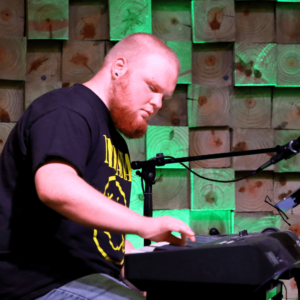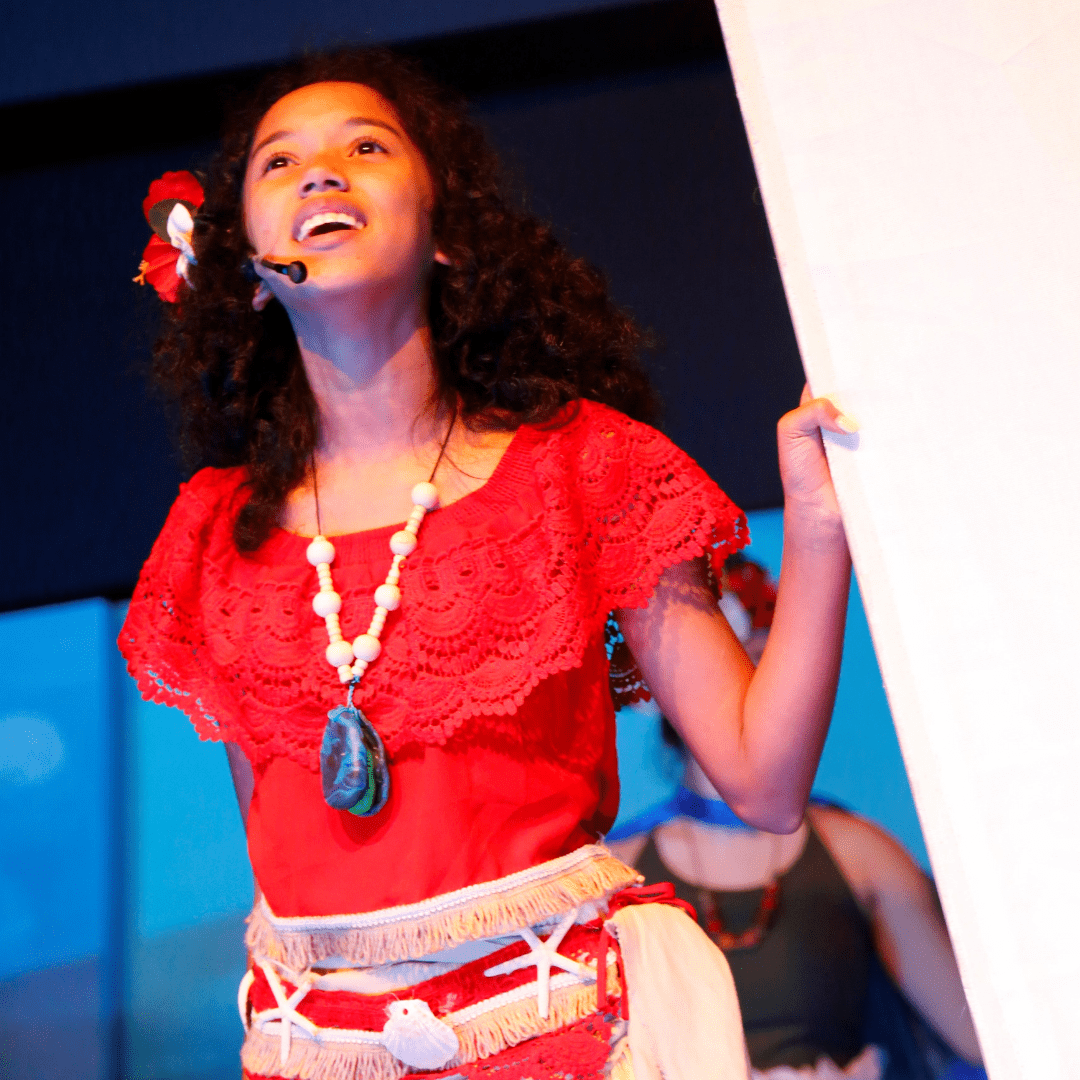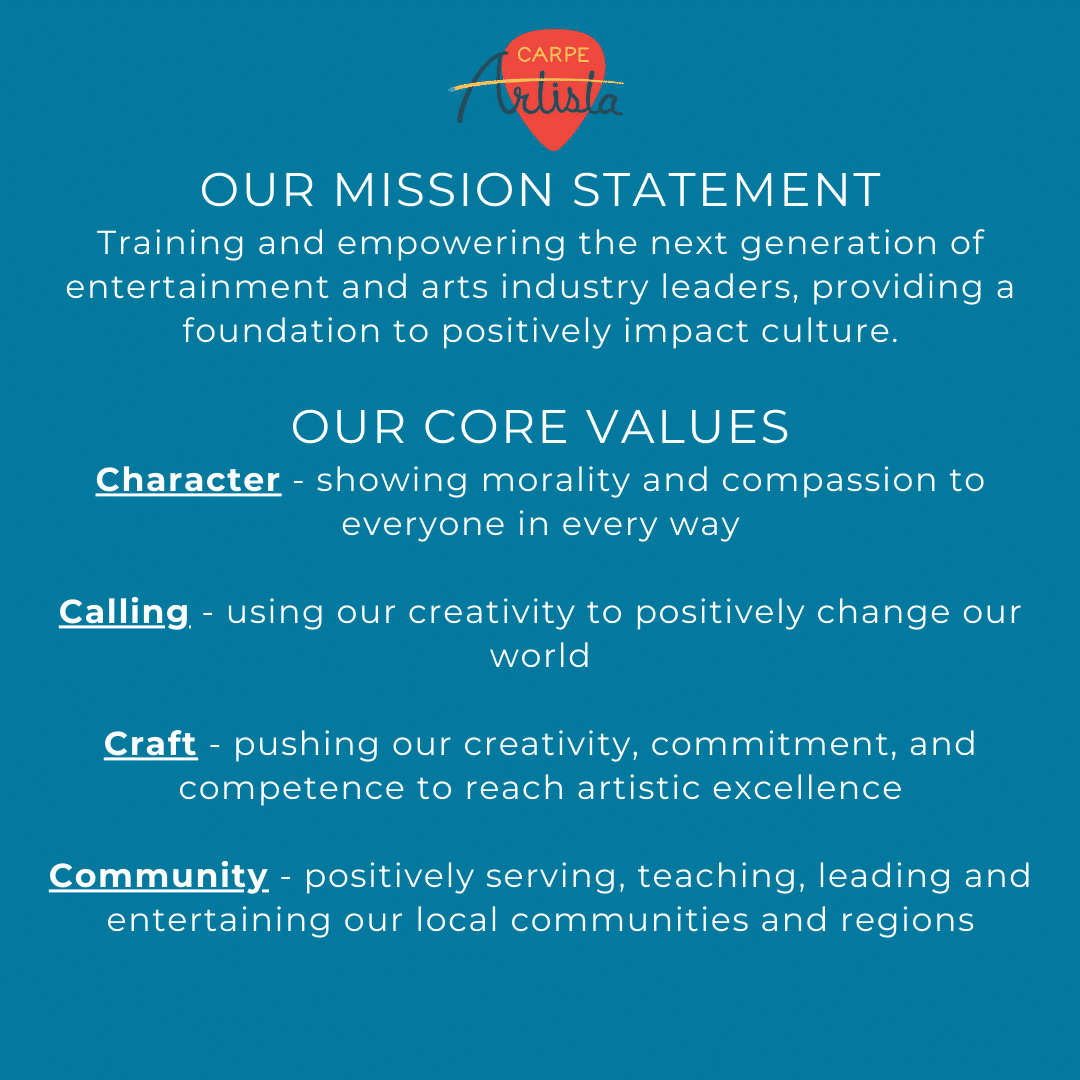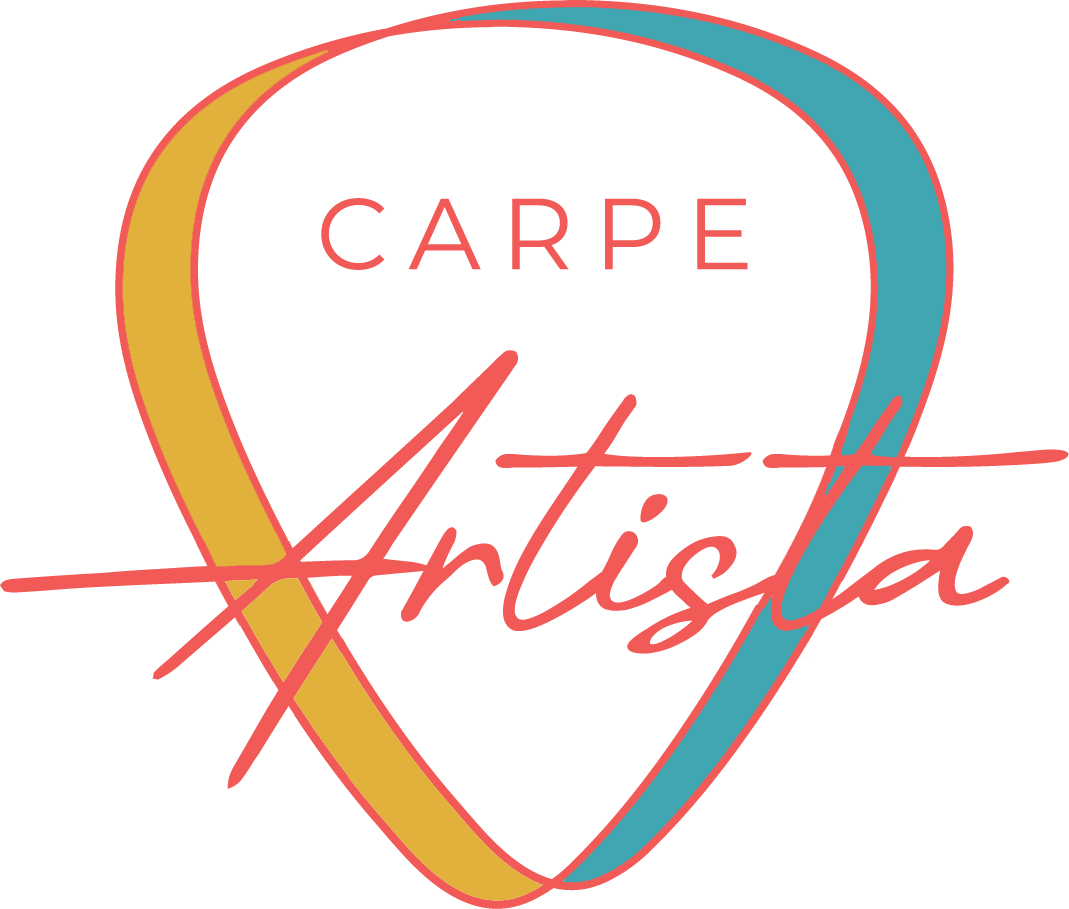
One of the best things you can do for your kids is enroll them in music and art lessons. Studies show that music and arts education facilitates learning other subjects and enhances skills that children use in other areas.
Carpe Artista Arts Academy provides children and adults with artistic training, leadership development and community engagement opportunities. We help you reach your full potential in our four core values: character, calling, craft and community. Many of our students have studied with us since our launch in 2010 and our graduates include an American Idol finalist, a Disney cast member, and several who are currently pursuing artistic higher education.
Our instructors are highly trained industry professionals that have a passion for seeing students grow their talents so they can grow their world. This ensures the right blend of personalization – meeting each student where they are – and formal methods to get them where they CAN be as a creative and as a person.
This focus on growth is what sets us apart.
Take a moment to learn what we offer students of ALL AGES through our award winning programs. Be sure to contact us with any and all questions.

Award Winning Academy
- Nashville Parent Magazine
- Rutherford County Parent Magazine Best of Parenting Award
- 2021 Best Art Instruction
- 2022-2024 Best Music Instruction
Rutherford County Ruthies Awards
- Favorite Arts Camp
- Favorite Visual Arts Instruction
- Favorite Photography Instruction
- Favorite Live Theater Company
- Favorite Arts Academy
Main Street Awards – Murfreesboro Post
- Best Artist/Pottery Studio
- Best Performing Arts School




BENEFITS OF MUSIC LESSONS
Cognitive Development: A study published in Psychological Science found that music lessons can increase IQ levels in children. Those who received music lessons scored higher on IQ tests compared to those who did not receive such lessons.
Improved Language Skills: Research from the Journal of Neuroscience indicates that music training can enhance language development by improving the brain’s ability to process sounds. This benefit extends to better reading and verbal skills.
Academic Performance:According to a study by Dr. Frances Rauscher and Dr. Gordon Shaw at the University of California, children who received music instruction scored significantly higher in spatial-temporal reasoning, which is essential for math skills. The College Entrance Examination Board reports that students involved in music education scored an average of 100 points higher on the SAT compared to their peers who did not participate in music programs.
Social and Emotional Development:Research published in Frontiers in Psychology suggests that group music activities can enhance social cohesion and cooperation among children. These activities help develop teamwork and communication skills. A study from the University of Cambridge found that children who engage in group music activities show greater empathy towards others. This is attributed to the collaborative nature of music-making, which fosters an understanding of different perspectives.
Enhanced Self-Esteem:Participation in music education programs can boost self-esteem and confidence. Performing in front of others and mastering a new skill contributes to a sense of accomplishment and self-worth. Playing in a group setting has the added benefits of learning the importance of cooperation and listening, as well as fostering friendships and mutual respect.
Lifelong Cognitive Benefits:A study from Northwestern University shows that individuals who received musical training in their youth have better cognitive function in older age compared to those who did not receive such training. This suggests that music education can have lasting benefits on brain health.
SOURCES:
Schellenberg, E. G. (2004). Music lessons enhance IQ. Psychological Science, 15(8), 511-514.
Kraus, N., & Chandrasekaran, B. (2010). Music training for the development of auditory skills. Nature Reviews Neuroscience, 11(8), 599-605.
Rauscher, F. H., Shaw, G. L., & Ky, K. N. (1993). Music and spatial task performance. Nature, 365(6447), 611.
College Board (2010). College-bound seniors national report: Profile of SAT program test-takers.
Kirschner, S., & Tomasello, M. (2010). Joint music making promotes prosocial behavior in 4-year-old children. Evolution and Human Behavior, 31(5), 354-364.
Rabinowitch, T. C., Cross, I., & Burnard, P. (2013). Long-term musical group interaction has a positive influence on empathy in children. Psychology of Music, 41(4), 484-498.
Costa-Giomi, E. (2004). Effects of three years of piano instruction on children’s academic achievement, school performance and self-esteem.
Psychology of Music, 32(2), 139-152.
Hanna-Pladdy, B., & Mackay, A. (2011). The relation between instrumental musical activity and cognitive aging. Neuropsychology, 25(3), 378.


